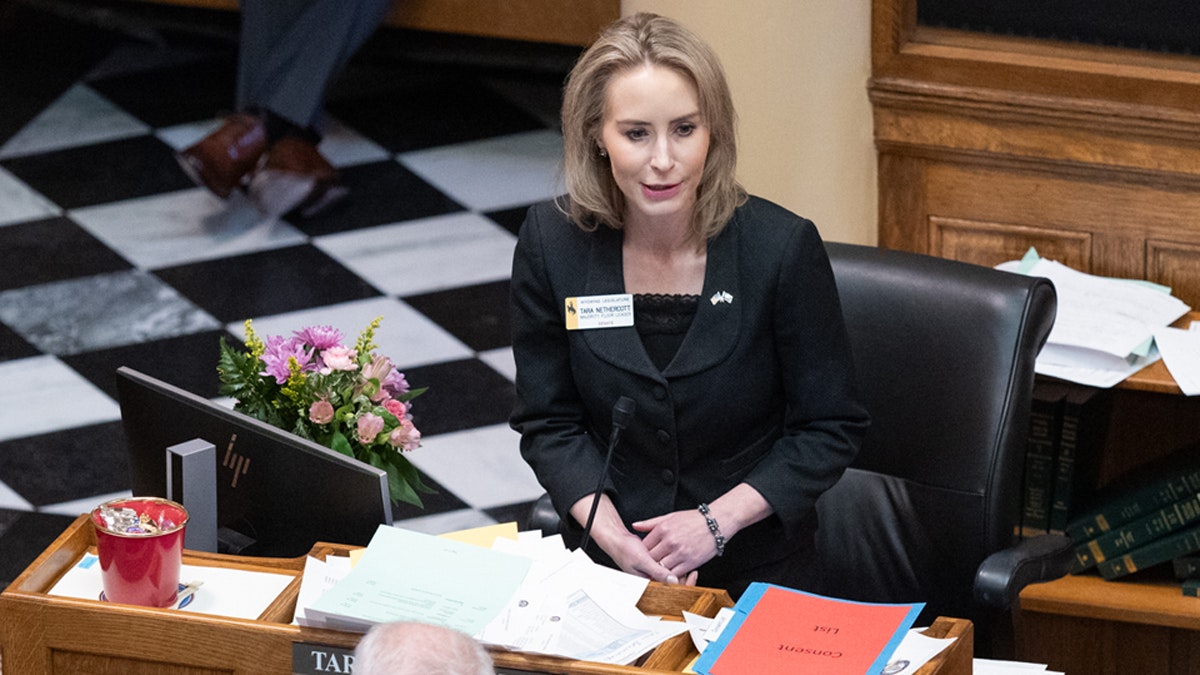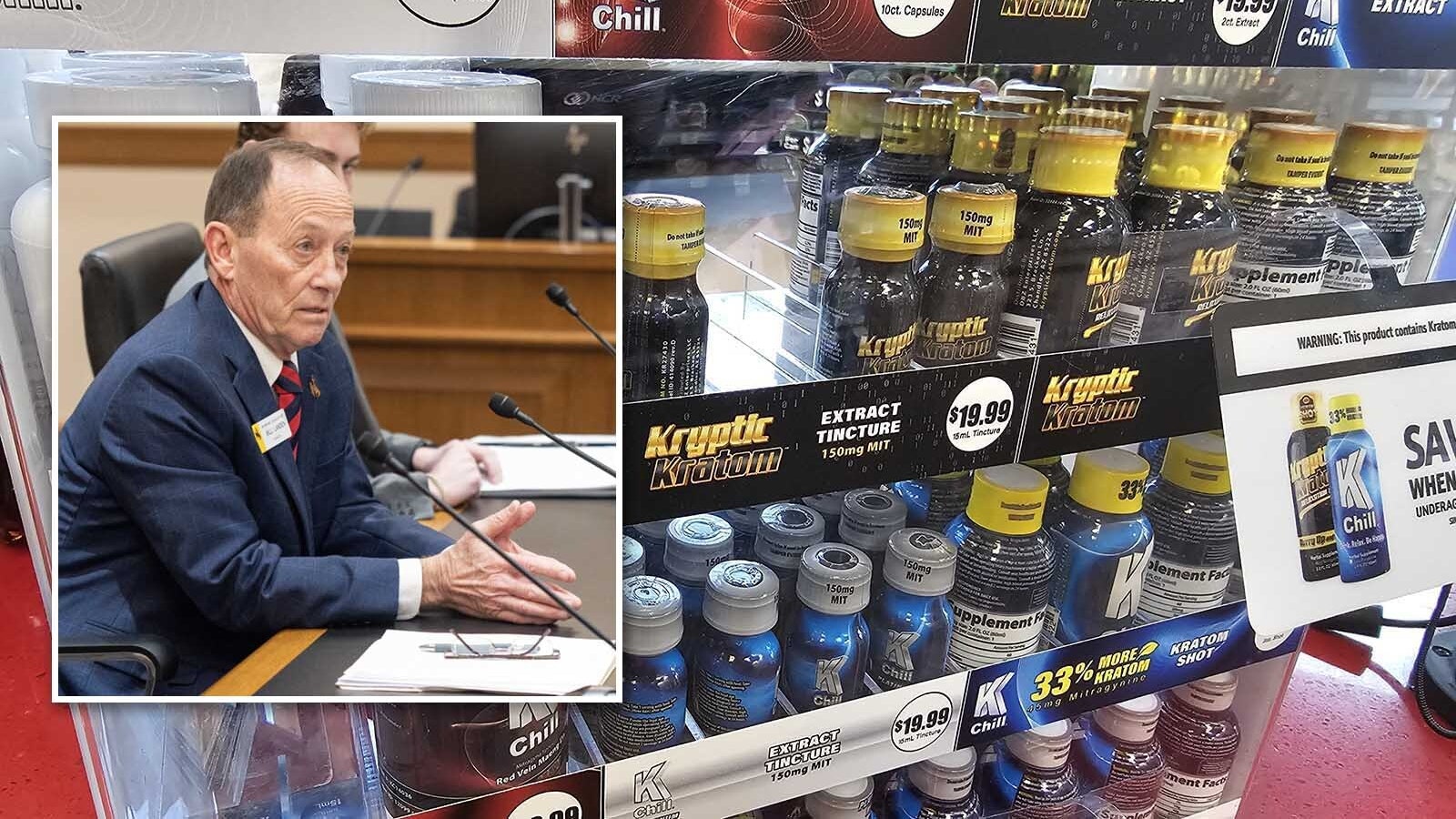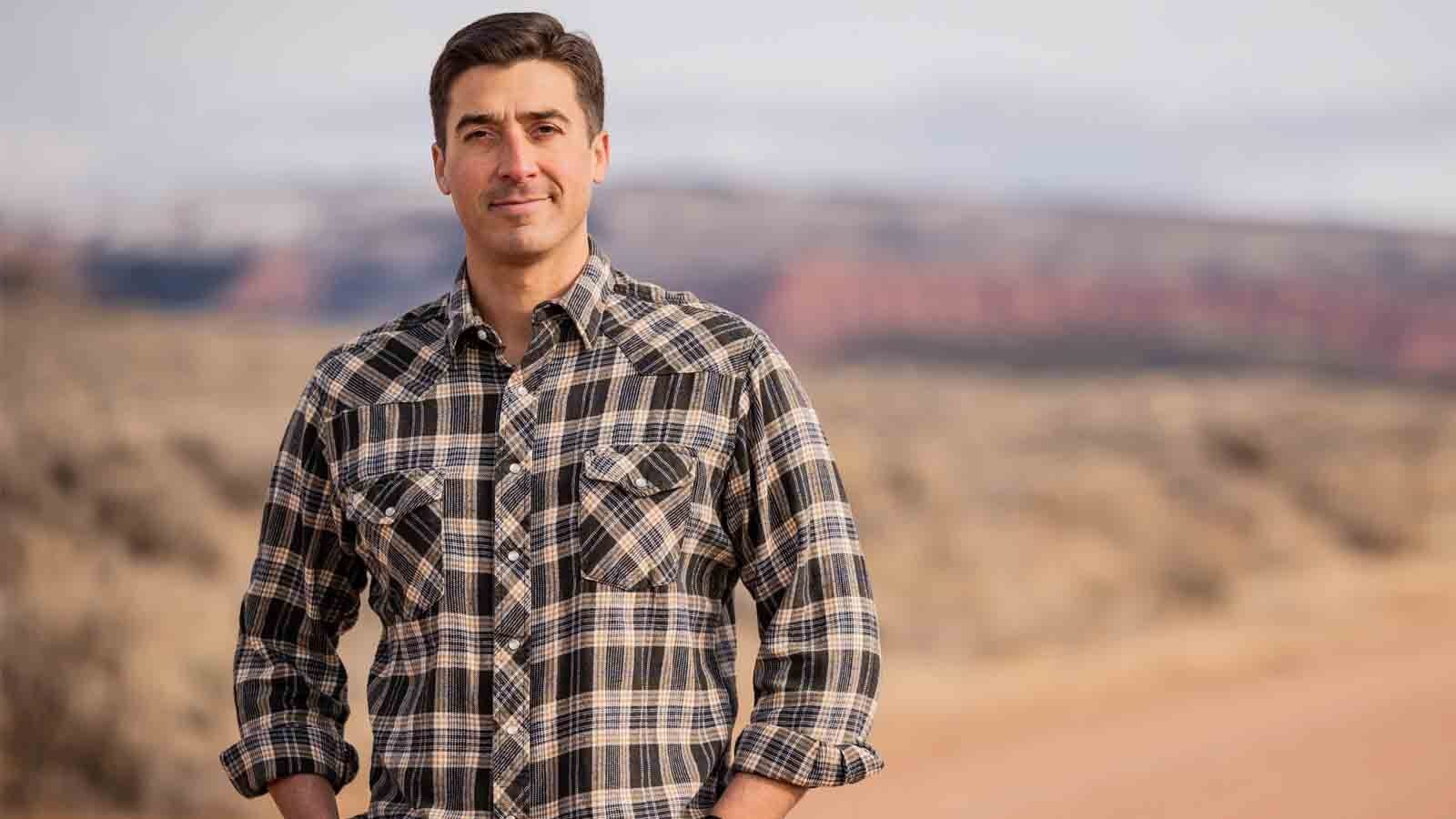CHEYENNE — Several state legislators grilled state security leaders Monday over the safeguards for transporting spent nuclear fuel across Wyoming's railroads and highways.
The conversation, which came during a hearing of the Transportation, Highways and Military Affairs Committee, had no legislation associated with it.
Committee Co-Chair Rep. Landon Brown, R- Cheyenne, described the hearing as “more of an education session” for the lawmakers to familiarize themselves with the dangers associated with moving nuclear waste through the state.
Homeland Security
Speaking first were members of the Wyoming Department of Homeland Security, including Director Lynn Budd and radiology program manager Dillon Conner.
Conner explained that most nuclear shipments through Wyoming come from Idaho National Labs (INL), which are usually routed for New Mexico. He added that Wyoming will sometimes see shipments bound for INL pass through as well.
Conner guessed about 360 trucks per year carry nuclear waste through Wyoming while the number of shipments which come via rail are currently unknown due to being protected by the U.S. Department of Defense.
A proponent of nuclear-friendly legislation, Rep. Lloyd Larsen, R- Lander, began by asking how many miles of U.S. highways have transported nuclear waste without incident in the past. Conner confirmed it was a substantial amount across decades but did not know the exact number.
Larsen followed by asking if nuclear transporters have a contingency plan in place should a winter storm come through Wyoming or a major crowd event like Cheyenne Frontier Days. Conner explained the department has a program in place called WIPP PIG which can halt a shipment of nuclear waste at any point should it be considered too hazardous.
Sen. Stephan Pappas, R- Cheyenne, then asked whether there was a security threat posed by the materials coming through Wyoming.
Conner said the transportation routes are chosen based on which roads and structures could support the weight of the shipments, which weigh hundreds of tons.
He added nuclear waste usually travels with a rail escort vehicle which provides armed security.
“The Atlas Railcar is an absolute beast,” Conner said of the train cars designed to haul waste. “It is meant to take the full brunt of a derailment or being hit with another train.”
In response to a question by Rep. Rob Geringer, R-Cheyenne, Conner confirmed he knew of only two major incidents of trains derailing while carrying nuclear waste.
Rep. Darin McCann, R-Rock Springs, then asked how much advanced notice the state receives for shipments of nuclear waste and how many people are notified.
Conner said the Nuclear Regulatory Commission mandates that he receive a ten-day notice of nuclear waste entering and exiting state.
It is then his job to inform other state agencies that need notice of the shipment, he added.
McCann expressed fears that trucks full of nuclear waste could be attacked by thieves. Conner assured him that security officials are trained in transporting such volatile cargo.
“The trucks concern me a little bit more,” McCann said. “They’re a little bit easier to, if somebody was really determined, to get after those.”
Conner added that in instanced of heightened concern law enforcement officials can escort a shipment of nuclear waste through the state, though this often isn’t needed.
Sen. John Kolb, R- Rock Springs, then asked whether a leak would warrant a response from the Department of Energy.
Conner said the INL would assist due to its proximity to Wyoming.
Rep. Cody Wylie, R- Rock Springs, asked whether Wyoming had the authority to tell the Department of Defense to no longer transport nuclear through the state. Conner did not have an answer.
“If we did try to do that, would it decrease the level of cooperation between the state and federal government?” Wylie asked.
Conner suspected such a move would “stress” that relationship. Budd added the state receives a $450 per cask fee for accepting those transportations, which funds the department’s program, making it to Wyoming’s advantage to accept nuclear waste shipments.
On Furlough
Brown acknowledged a contingent of the federal Department of Energy could not be present at the meeting due to the ongoing government shutdown.
“DC doesn’t know how to work very well right now,” Brown jeered.
In the public comment section of the meeting, Wyoming resident Cathy Cline said she was concerned about trucks carrying nuclear waste. She cited a Department of Defense report which reported some trucks had problems with sealing nuclear waste casks.
She also pointed to other data showing nuclear waste train derailments among drivers not properly trained in the WIPP program.
Committee members agreed that until they could see proof of the claims, they could not address those points. They called on Cline to send them copies of her sources.
Wyoming Highway Patrol Capt. David Wagener said his agency would escort a shipment that is suspected of being a security risk when asked but does not do so on a regular basis.
Budd added the state also issues radioactive waste transportation permits. She said the department creates about 298 permits per year, which made the state roughly $327,000 across 727 casks last year.
Radioactive
The proper use of nuclear fuel continues to be a major concern for Wyomingites who worry about potential impacts on their communities, and a point of debate for residents who want to expand that part of the energy sector.
Energy developer Radiant Nuclear this month decided to relocate a proposed project from Wyoming to Tennessee following fierce pushback from residents over concerns it would store spent nuclear waste on site.
“But, at the end of the day, our decision came down to regulatory certainty,” Radiant Nuclear Senior Director of Operations Matt Wilson wrote in a Cowboy State Daily letter to the editor. “Wyoming law currently allows spent fuel to be stored only at operating reactor sites, signaling nuclear is part of Wyoming’s energy portfolio.”
Rep. Bill Allemand, R-Casper, was a fierce advocate against the nuclear project and told Cowboy State Daily he believed it was worth it to ruin some political relationships along the way.
“There was a couple others that still hate my guts, but that's something I just like to work out with these people and not have not put that out in the public,” he said. “I signed up to be the House District 58 representative. I took an oath of office saying that I would protect their health and welfare. Absolutely it was worth it. I did what I told the people I would do.”
Members of the Joint Minerals, Business & Economic Development Interim Committee in July clashed over a proposal to allow advanced nuclear reactor manufacturers located in Wyoming to site installations for storing spent nuclear fuel at their manufacturing facilities, subject to federal licensing and detailed reporting requirements.
That hearing led to gavel banging and raised voices and sparked division among attendees who debated the safety and economic impacts of such a measure.
Last week, Gov. Mark Gordon blasted Radiant opponents in Wyoming, calling them “Club No.”
“‘Club No’ has ushered in a new culture of no matter who began or who commenced it, we’re against it,” said Gordon. “That is not the way Wyoming became the great state it is… Wyoming should not be held back by fear. We should be pioneers.”
Gordon added, “Let’s work together to ensure Wyoming remains open for business. We will not let the ‘Club No’ crowd define our future.”
Jackson Walker can be reached at walker@cowboystatedaily.com.





